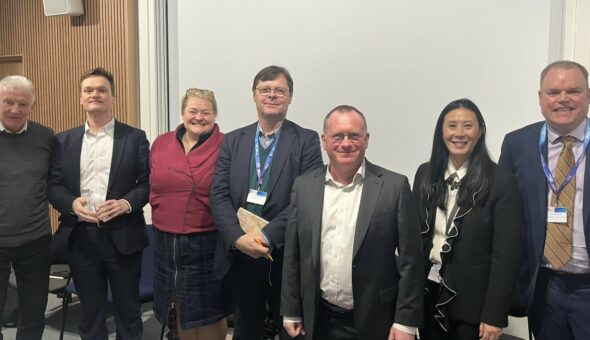Amidst the turmoil that this year has presented, many of us have had to re-think and refine our research projects, particularly those of an empirical nature. For others, the pandemic itself has presented new opportunities for research. Exactly how are we adapting our research in the face of the COVID-19 pandemic?
Against this backdrop the Centre for Business, Organisations and Society ran a webinar to share experiences, explore challenges, and hear from those who have successfully engaged in research projects over the past few months. Here, Andrew Crane and Sarah Glozer present the top tips coming out of that session.
- Act fast – The pandemic has driven a sudden need for new research on a new topic, so it can pay to jump in quick. For example, Haiming Hang’s quick-thinking research into the impacts of the pandemic on the hard-hit tourism sector was fast-tracked for publication at one of the top journals in the tourism field. Many other journals are launching special issues and other ways to quickly publish COVID-19 related research.
- Be adaptable – Lots of existing research ideas have been scuppered by the pandemic, so adaptability is critical. For Joanne Hinds, her initial research plans were abandoned when an observational study on employees’ engagement with cyber-security devices in open-plan offices became completely untenable. Instead, Jo and colleagues began gathering data through interviews and other means, which soon generated unforeseen and valuable insights.
- Be resourceful – Conducting research during a pandemic is difficult and may require us to look in unconventional places, to cobble approaches together through a bricolage rather than a single method, and to learn as we do. Christine Hine, a global expert on virtual methods stressed the need to innovate in the methods we use for gathering data online, advocating multifaceted sources of online data rather than relying on a single data type.
- Be problem driven – Now more than ever, people are looking for answers to practical problems in the world, not abstract academic questions. Consider what needs to be discovered, rather than remaining blinkered by existing research questions and theories. As per point 1, Haiming’s research was motivated by a practical concern about the hotel industry and a genuine desire to help by uncovering new, actionable research findings, rather than being led by gaps in theory.
- Think inclusive – So many of us are now embracing the digital world in our research. However, it is important to remember that not everyone is online. Christine pointed out that we must consider who is typically excluded from online research and how we can better include them when developing our research problems, strategies and sampling methods.
- Take advantage of natural experimental conditions – Uncontrolled environments can play havoc with research in progress. However, exploring the effect of changing conditions associated with COVID-19 on phenomena of interest, can allow for invaluable before/during pandemic experimental designs. For Yvetta Simonyan’s research into ethical evaluations of unconventional marketing offers, the new context presented a great opportunity to re-examine assumptions.
- Take a longer-term view – Accept that some projects will simply not meet the goals we had for them in the short-term. Instead, think about how we can make these projects work in the longer-term. For instance, as per Jo’s experience in point 2, can we turn a COVID-19 interrupted project into a pilot project and, based on these insights, build a new project that better accounts for the ‘new normal’?
- Forget 2020 – As one of our audience members remarked, an alternative option is to cut our samples off hard at the end of 2019 and work exclusively on pre-pandemic data untainted by recent shocks. Many of us are desperate to read about topics other than COVID-19, so if we work on issues that are still relevant outside of the pandemic, 2019 marks the natural end of a decade and can work as a neat cut-off for data collection.
- Stay balanced – Not everyone has the time (or the inclination) to do research right now and it’s important to recognise that that is OK. Maintaining a good work-life balance and strong mental health are going to be crucial skills to nurture in the new normal to sustain our research capacities (and selves!) for the long-haul. So, let’s be kind to ourselves, patient and avoid comparing ourselves to others.
- Don’t forget about serendipity – Those quick chats in the corridor, ideation over coffee, the intellectual electricity generated via in-person seminars… We must not forget that a vast amount of research knowledge is usually generated via these informal channels that have been swept from under our feet. So let’s continue to make contact with others, make time to ringfence research and hang-out together (virtually) as best we can. We are all in this together.
Respond



